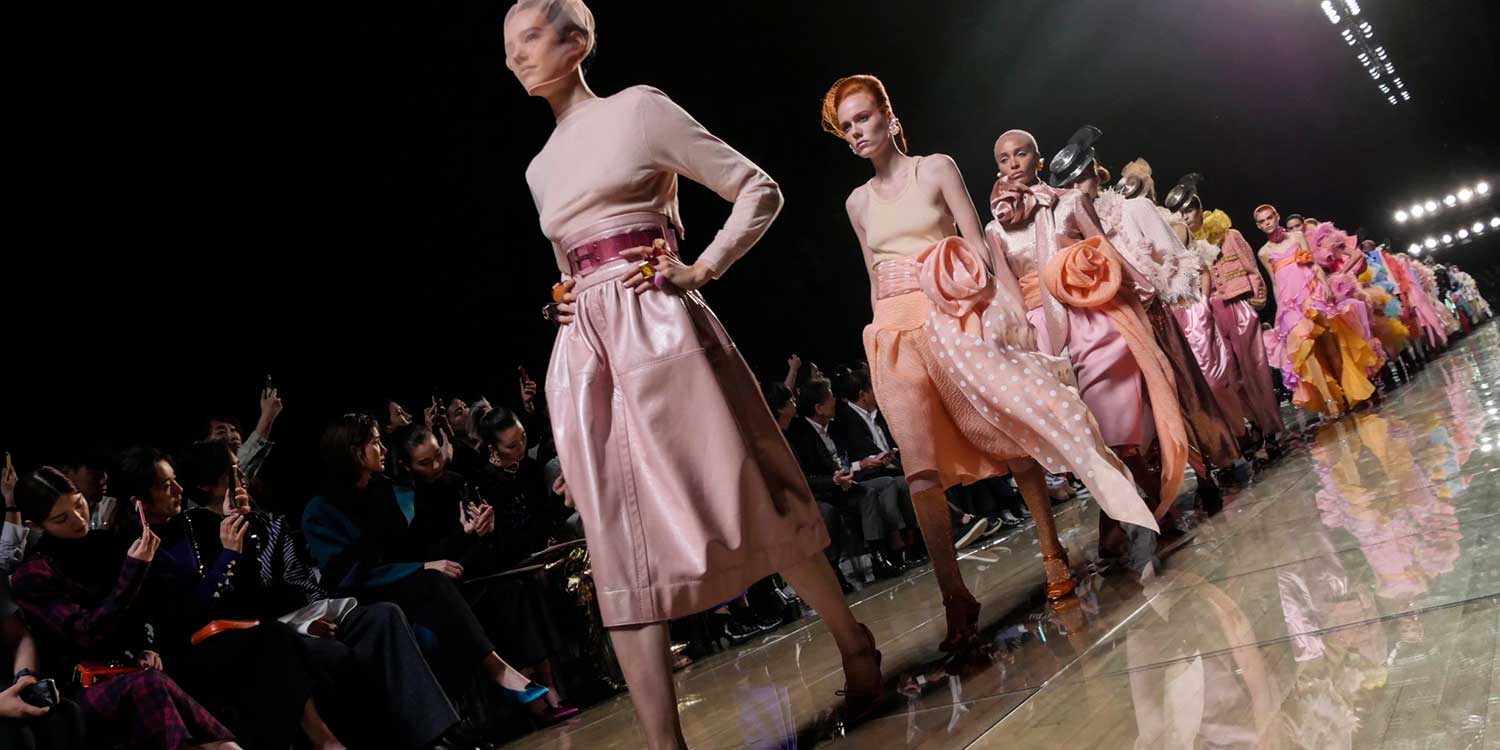Unveiling the Essence of New York Fashion Week
New York Fashion Week (NYFW) stands as one of the most iconic and influential events in the fashion industry, showcasing the latest trends, designs, and collections from renowned designers and emerging talents alike. Held biannually in February and September, NYFW transforms the streets of New York City into a global hub of creativity, innovation, and style, attracting fashion insiders, celebrities, influencers, and media from around the world. From glamorous runway shows and exclusive presentations to star-studded parties and fashion events, NYFW sets the stage for the future of fashion and shapes the cultural landscape of the industry.

The Origins of New York Fashion Week
The origins of New York Fashion Week can be traced back to the early 20th century when fashion shows were primarily held in private salons or department stores to showcase designer collections to buyers and clients. In 1943, fashion publicist Eleanor Lambert organized “Press Week” to showcase American fashion designers and promote their work to the press. This event laid the foundation for what would later become New York Fashion Week, establishing New York City as a leading fashion capital and fostering the growth of the American fashion industry.
The Evolution of New York Fashion Week
Over the years, New York Fashion Week has evolved into a multi-day extravaganza that sets the tone for global fashion trends and influences the direction of the industry. From its humble beginnings in small venues and showrooms, NYFW has grown exponentially in scale and scope, with hundreds of designers presenting their collections across multiple venues throughout the city. The event has also embraced digital innovation, with live streaming, social media coverage, and virtual reality experiences allowing fashion enthusiasts worldwide to participate in the excitement of NYFW from anywhere in the world.
The Highlights of New York Fashion Week
Runway Shows and Designer Presentations
At the heart of New York Fashion Week are the runway shows and designer presentations that showcase the latest creations from top designers and emerging talents. From established fashion houses like Marc Jacobs, Calvin Klein, and Ralph Lauren to up-and-coming designers making their debut on the fashion scene, NYFW offers a diverse lineup of shows that celebrate creativity, craftsmanship, and individuality. Each runway show is a spectacle of style and innovation, featuring cutting-edge designs, avant-garde silhouettes, and bold statements that capture the spirit of the season and captivate audiences worldwide.
Celebrity Sightings and Front Row Fashions
New York Fashion Week is not just about the clothes; it’s also a magnet for celebrities, influencers, and fashion icons who flock to the city to attend runway shows, parties, and exclusive events. The front rows of NYFW are a who’s who of the entertainment industry, with A-list celebrities, models, musicians, and style mavens showcasing their impeccable taste and sartorial flair. From street style photographers capturing the latest trends outside the venues to paparazzi capturing candid moments of celebrities mingling backstage, NYFW is a spectacle of star power and fashion inspiration.
Fashion Week Parties and Events
Beyond the runway shows and presentations, New York Fashion Week is also synonymous with a myriad of parties, receptions, and after-hours events that celebrate the spirit of fashion and creativity. From glamorous galas and cocktail parties hosted by luxury brands to exclusive dinners and soirées attended by industry insiders and VIP guests, NYFW is a whirlwind of social activity and networking opportunities. These events provide a platform for designers to connect with buyers, editors, influencers, and tastemakers, fostering collaborations and partnerships that shape the future of fashion.
The Impact of New York Fashion Week
Setting Trends and Shaping Culture
New York Fashion Week serves as a trendsetter and cultural influencer, dictating the direction of fashion trends and shaping the collective consciousness of the industry. The styles, silhouettes, colors, and themes showcased on the runways of NYFW often trickle down to mainstream fashion, influencing the way people dress and express themselves around the world. From the rise of streetwear and athleisure to the resurgence of retro-inspired fashion, NYFW reflects the ever-evolving tastes and preferences of consumers and anticipates the next big movements in style and design.
Fostering Diversity and Inclusivity
In recent years, New York Fashion Week has made significant strides toward fostering diversity, inclusivity, and representation within the fashion industry. Designers, brands, and organizers have embraced a more inclusive approach to casting models of diverse backgrounds, sizes, ages, genders, and ethnicities, reflecting the rich tapestry of humanity and challenging traditional beauty standards. By amplifying voices that have been historically marginalized or underrepresented, NYFW has become a platform for social change and empowerment, promoting greater acceptance, equality, and visibility within the fashion community.
Embracing Sustainability and Responsibility
As awareness of environmental and social issues continues to grow, New York Fashion Week has increasingly embraced sustainability, ethical practices, and social responsibility as core principles of the event. Designers and brands are incorporating eco-friendly materials, ethical production methods, and transparent supply chains into their collections, reducing their environmental footprint and promoting greater accountability throughout the fashion industry. From zero-waste initiatives and upcycled designs to charitable partnerships and community outreach programs, NYFW is championing a more sustainable and conscientious approach to fashion that prioritizes the planet and its people.